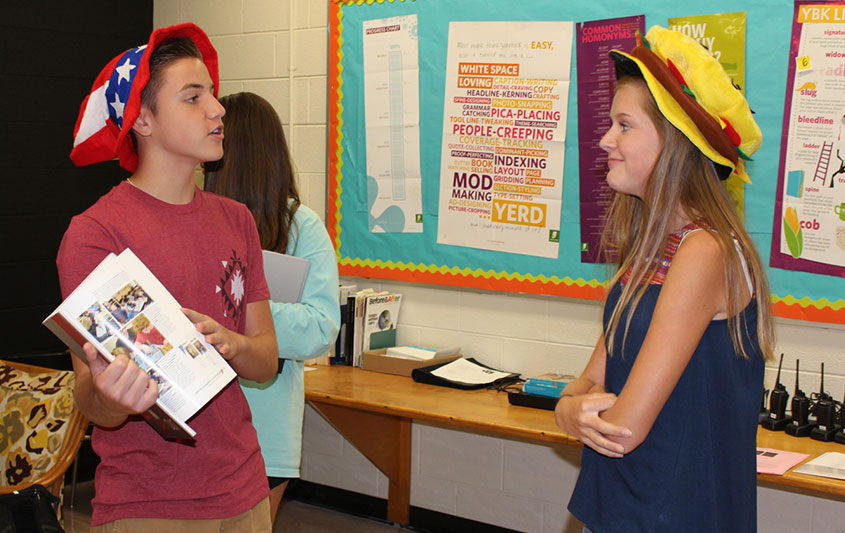Yearbook Business Ads: Making the Most of it in Middle School
Share the post "Yearbook Business Ads: Making the Most of it in Middle School"
Selling business ads can be daunting, especially at the junior high level. However, I believe it’s important for my staff to have experience and understanding of what it takes to communicate and interact with those they may or may not know through the selling process. We begin selling pages the first couple of weeks of school, because we know that other schools will be vying for business ads too. Therefore, this selling activity makes them more comfortable in their role, while breaking the ice with new staff members. Some choose to start over the summer months, which of course, isn’t a bad idea either.

The first activity is handshaking. This may sound silly, but many people have weak or flimsy handshakes, which can tell you a lot about a person’s confidence. We all go around shaking hands, myself included, to familiarize each other with the types of handshakes each person has. I also give constructive criticism when shaking their hands. This is the first way to break the ice. Next, I role play a scene with my editor to show the class what I am expecting them to do when they meet with prospective sponsors.
If they are the seller they must:
- Have a yearbook on hand (if available) and sponsorship form
- Ask for a manager or business owner
- Shake hands and introduce themselves by stating their name, their school and position on staff
- State the reason for their visit
- Share information about the sponsorship such as page choice, importance of sponsorship, the cost, ways to pay, who to send payment to and the deadline
- Follow up with a handshake and thank them for their time
I ask students what they noticed in my role play to keep them engaged. I then switch roles with my editor so that she can practice being the seller. It takes time for them to learn what they must do and say to someone.
Next, I have them break into groups with partners or sometimes three people and ask them to develop a scenario. One must sell the book and the other can be the sponsor. Students can use items in the prop box in their role playing, and I also have premade slips of paper that have scenarios if they cannot think of one. I normally give them 10 minutes to practice. They are allowed to write down a script to help them remember what to say. Before the scene begins, I give the business person in the scenario, a slip of paper that either says to accept their offer or reject their offer, which means the direction of the scene may change. That’s realistic to prepare for when they’re actually out selling.
The rest of the class must analyze the scenario by saying what he or she did well or needs to improve. They will have another chance to replay the scene and can reverse roles. Depending on class time, it normally takes two classes to finish the scenes.
I offer incentives for selling pages — not grades, but yearbook discounts. At the junior high level, students are not driven, and most have to rely on parents to help them sell business ads. Yes, the role playing is fun and beneficial, but most will not be walking into businesses alone to sell pages. Therefore, giving a grade for the number of sponsorships sold can frustrate students and parents. Instead, I give them $5.00 off the price of their personal yearbook for each sponsorship received. Therefore, their books can cost little to nothing.
We sell our pages for $35.00 and so far have done very well. We always set a goal for total sales, which gives our staff a focus. If they meet the class goal, we have a day to celebrate with treats. After all, celebrating big and little accomplishments keeps our staff happy and willing to work.
- Leave Your Legacy: End of Year Staff Traditions - June 6, 2017
- How Our Yearbook Went from Ground Zero to Award-Winning - June 1, 2017
- The Art of Recycling: Using Covers to Cover Your Wall - May 23, 2017



